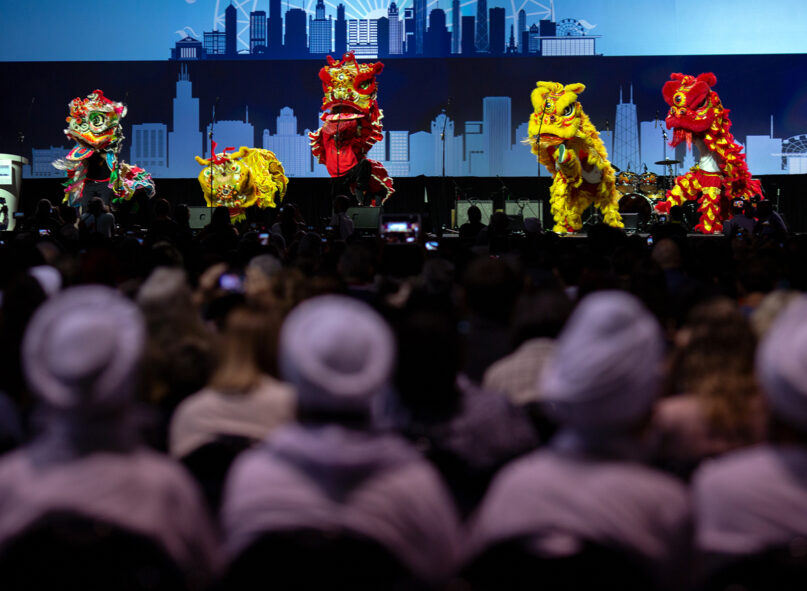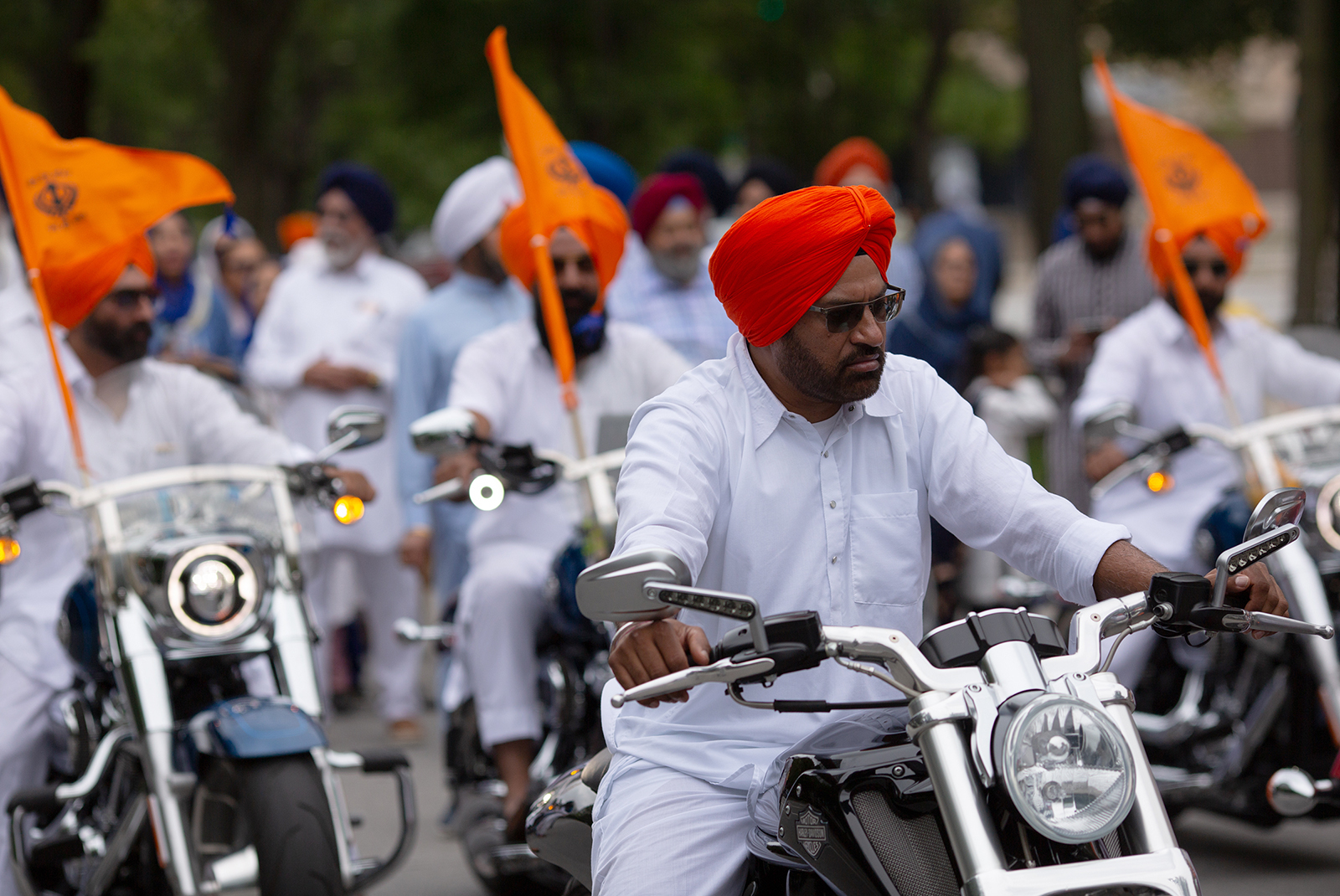Opinion
A religious calling to protect democracy
Most religious doctrines do not require an embrace of democracy. But in today’s world, authoritarians are attempting to do the opposite — to recruit communities of faith to undermine democracy.

(RNS) — As religious leaders gather this week for the Parliament of the World’s Religions in Chicago, we ought to reflect on the ways that our shared belief in the equality of human beings demands that we defend democracy. We should also understand the pivotal role that people of faith must play to preserve the freedoms — including religious freedom — that democracies protect.
Religious people have a rich history of calling the United States to live up to its founding ideals. In her own time, civil rights activist Fannie Lou Hamer took on the entrenched white power in Mississippi’s Democratic Party by quoting Scripture and the U.S. Constitution, telling the brutal stories of voter suppression facing Black Americans and ultimately posing the question: “Is this America?”
Khizr Khan, the father of a slain U.S. soldier, embraced his own Muslim faith and defended minority political rights, in the face of political promises to ban Muslims from entering the United States during the 2016 election.
“Have you even read the United States Constitution?” he famously asked then-candidate Donald Trump in a speech before the Democratic National Convention.
The dignity of the human person is essential in many religious traditions. In my Catholic faith, this belief is rooted in an understanding that each person is made in the image and likeness of God. This belief should inspire us to work to defend democracy — not because any specific religious text requires it, but because democracies are the best way to protect individual liberties, and because this system of government allows individuals to have a say in the way we build a society.
RELATED: Parliament of the World’s Religions hopes to harness faith to address world’s ills
Most religious doctrines do not require an embrace of democracy. But in today’s world, authoritarians are attempting to do the opposite — to recruit communities of faith to undermine democracy. We see this in misguided expressions of Christian nationalism in the United States and the “spiritual cover” provided to Vladimir Putin by the Russian Orthodox Church.
When we marry a preference for a specific religious identity with the force of the state, we create dangerous conditions that are antithetical to religious values. This invites authoritarian coercion of the faith tradition seeking power, and threatens the religious liberty of those who do not share that faith. It politicizes religious faith itself and removes the voluntary nature that defines true religious belief.

Sikh motorcyclists participate in the Parade of Faiths in Chicago on Aug. 13, 2023. The parade preceded the Parliament of the World’s Religions, which began Aug. 14. Photo by Lauren Pond for RNS
People of faith can make prudential judgments regarding candidates and policies while informing these decisions by the moral framework of their religious tradition. This can best be done within a system that values free and fair elections, open debate and both a constitutional system that protects individual rights and democratic processes that allow problem-solving on behalf of the people.
In recent years, we have seen the ways that political movements can co-opt religious faith in harmful ways. On the one hand, some religions slap religious labels onto political beliefs without a real respect for its underlying values. Others have embraced a “the ends justify the means” approach to Christianity — even if those means include tearing down our political processes. The most dangerous example of this approach was the Jan. 6 attack on the United States Capitol, where some Christians shamefully cited their faith as the inspiration.
If we are willing to sacrifice the protection of democratic institutions for temporary political gain, we will lose the freedoms we hold most dear — and further diminish Americans’ trust in religion itself.
The answer to anti-democracy religious activity is not to demand that people of faith remove their religion from their political engagement.
A retreat of religious values from our public life would leave our democracy in an even more perilous situation. A Civil Rights Movement without the leadership of people like the Rev. Martin Luther King Jr., Rabbi Abraham Joshua Heschel and the Rev. Ted Hesburgh is unimaginable. The daily work of feeding people in need, welcoming refugees and tackling issues like addiction and homelessness is largely led by faith-based organizations.
At this pivotal moment, democracies are in decline in many places in the world, and it faces an existential threat here in the United States. A profound lesson of the 20th century is that to defeat an authoritarian, we need a broad coalition of folks who might disagree on politics and on policy, but who are willing to prioritize a defense of democratic systems that allow us to resolve disputes peacefully and democratically. People of faith are crucial to building and maintaining such a coalition.
This is about more than any political candidate or party. Voting is extremely important, but it is the bare minimum of how people of faith can serve our public life. We must work to ensure that every eligible person can vote, every vote is accurately counted, the results are respected and the rule of law triumphs. While the specific calling of each religious person may be different, each of us has a role to play in the preservation of democracy.
(Chris Crawford is a policy advocate at Protect Democracy. During the 2020 election, he co-founded Faiths United for Free and Fair Elections and organized a number of faith-based initiatives to protect the 2020 election. The views expressed in this commentary do not necessarily reflect those of Religion News Service.)
No comments:
Post a Comment